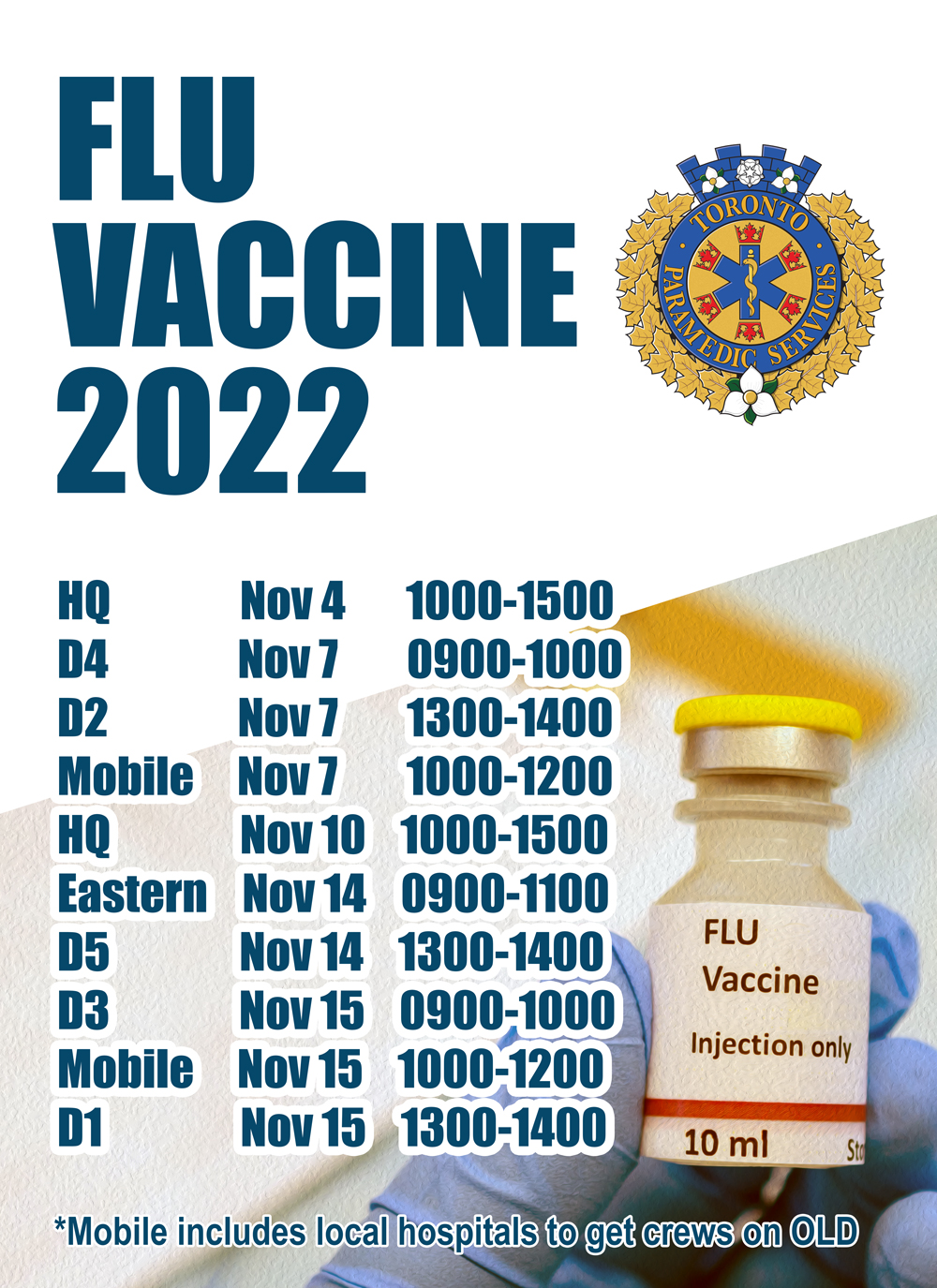To:
All Toronto Paramedic Services Staff
From:
Adam Thurston
Commander, Community Safeguard Services
Dr. Russell MacDonald
Medical Director
Toronto Paramedic Services updated the Divisional Infection Prevention and Control (IPAC) standards in May 2023 to align with the latest public health recommendations from Public Health Ontario. These standards are important to note given the growing numbers of COVID-19, influenza, and respiratory syncytial virus (RSV) cases in the community.
The following remain in effect for all staff:
1. Pre-Screening – Staff and visitors are required to complete a self-screening for common symptoms of COVID-19 and other infectious diseases prior to entering the workplace. A self-screening aid is posted in workplaces and is attached for reference. Staff who fail self-screening must contact their Superintendent or the SSC and must not enter the workplace.
2. Isolation Period/Return to Work – Staff who have symptoms of any febrile respiratory illness or test positive for COVID-19 or respiratory virus may return to work once their symptoms have been improving for at least 24 hours (48 hours if gastrointestinal symptoms were experienced) AND are fever free (temperature <38.0°C). Rapid Antigen Testing (RAT) kits for COVID-19 are available in all Paramedic stations and are provided upon request in other work locations.
Wearing a medical grade surgical mask is strongly recommended for 10 days from the onset of symptoms.
3. Masking in Patient Care Settings – A Paramedic Services supplied medical grade surgical mask is the minimum level of respiratory protection required for ALL patient care activities, as well as entry into patient care spaces (including hallways where patient care is performed).
An N95 respirator is required in the following circumstances:
- Known or anticipated performance of an aerosol generating medical Procedure (AGMP)
- Patient fails the Point-of-Care Risk Assessment
Staff may choose to wear a higher level of personal protective equipment based on their assessment of the situation, at their discretion.
We will continue to monitor guidance from Public Health Ontario and work with our Health and Safety Team and Union partners to ensure a safe and healthy workplace.
Sincerely,
(Original signed by)
Adam Thurston
Dr. Russell MacDonald







You must be logged in to post a comment.